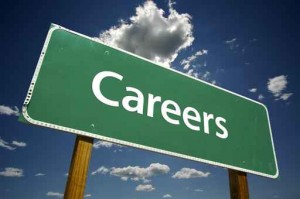 A few weeks ago I resigned from EMC. My last day is 10 May. Similar to my last weeks at Intel, the “lame duck” period working for a soon-to-be-ex-employer usually contains the most fascinating and instructing weeks on the job. My days have been filled with friends calling to wish me luck, pick my brain, and find out for themselves as much as me what might be next.
A few weeks ago I resigned from EMC. My last day is 10 May. Similar to my last weeks at Intel, the “lame duck” period working for a soon-to-be-ex-employer usually contains the most fascinating and instructing weeks on the job. My days have been filled with friends calling to wish me luck, pick my brain, and find out for themselves as much as me what might be next.
Most are surprised that I am not going to another job yet. Invariably a pregnant pause follows me telling them I am going on sabbatical. I think they are usually wondering:
- Was Scott fired?
- Is Scott rich?
- Has Scott gone crazy?
Well, no to the first two. To number three you’ll have to follow my actions for the coming year and reach your own conclusion! As others ask and challenge me about my future, we have had some friendly conversations of incredible insight. They have helped me form a clearer picture about what I need in my next job.
I now believe our jobs are aggregations of one or more primitive activities. These primitive activities closely map to intrinsic skills each of us possess. Any one activity is usually too basic to to fullfil us as a fulltime career. And employers large and small give us the opportunity to act out any of these roles. We rarely decline this whether we like the new role or are good at it. As a result our chosen profession tends to be a combination of multiple roles. Sometimes our skills naturally align with them. Other times they do not.
Here are the basic actors each of us can play:
- The analyst: someone that takes large amounts of information and reprocesses it for others to use.
- The machinist: a person that creates devices to do work.
- The networker: the man or woman that connects people with needs and questions to those with resources and answers.
- The organizer: somebody that schedules, optimizes, and directs traffic.
- The teacher: a person that communicates knowledge effectively resulting in high retention.
- The translator: someone that understands information in one format and can communicate it in another.
- The librarian: somebody that can deal with huge amounts of information to find relevant references at request.
Now consider the jobs in our lives and how they comprise these simple actors. Engineers are mostly machinists and personal assistants are mostly organizers. Teachers are teachers and marketing people generally are translators. Lawyers are great librarians and politicians are great networkers. Although these examples are best mapped to a single actor I think in the real world we end up playing multiple roles.
My first job was digital test research and development. It entailed large amounts of software programming, debugging, and trial and error. In retrospect that job needed an analyst and a machinist. These two jobs are introspective and require uninterrupted concentration.
My second job was managing a performance benchmarking group. As a manager the organizer actor was needed. The performance discipline required an analyst. As a senior engineer I needed to be part teacher.
At VMware I led a tiny technical marketing team. It required me first to act as a translator from engineering to our customers. Next I had minor responsibilities as a networker or organizer.
In my last three years at EMC I was a matrix manager whose primarily responsibility was networking and organization. Occasionally translation was needed.
Now that I have a system for the types of jobs we all do I have to ask myself, which roles I am good at? And what do I want to do? In my heart I believe I am an analyst and a translator. I see patterns in the world and our lives and I enjoy discussing them with the people I meet. Conversely, I am not the organizer and I am not a fantastic networker. I see the people that are gifted at these areas. And I see how they excel when their natural skill aligns with the requirements of their job.
I could either spend my life trying to develop those skills or better aligning my profession with my natural gifts. I am coming to believe that all of us would be happier in our jobs if we put our efforts into alignment and not changing our intrinsic skills.
So, what job needs an analyst and a translator? I mentioned marketing above, a job I once enjoyed very much. A CTO often needs these strengths. And there is something to be said for consulting on industry trends and technologies. I have this sabbatical to refine this idea and I plan to make my next job my happiest yet.

You are also a very gifted writer.